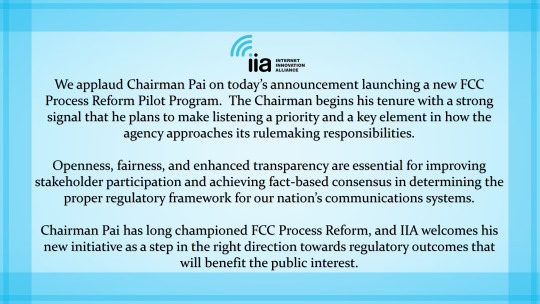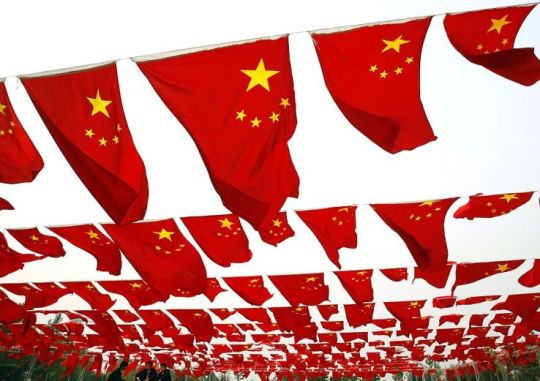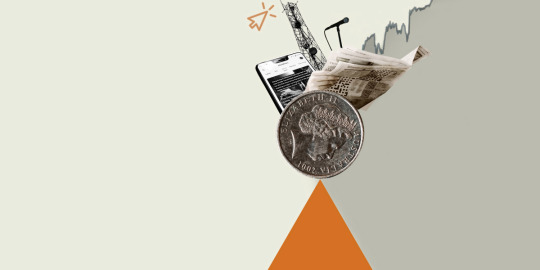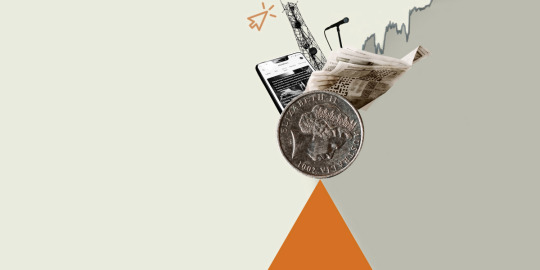#TechPolicy
Text

A bill that President Joe Biden approved mandates that ByteDance, the parent company of TikTok, give out its assets within nine months to a year in order to prevent the applicability of an effective ban in the US.
What You Think🤔 About It Tell Me In Comment💬
#breaking news#world news#global news#news#usa news#whatshappeningintheworld#entertainment#gaza#israel#apple#TikTokBan#TikTokLaw#BidenSignsTikTokBan#TikTok#BannedTikTok#TikTokExecutiveOrder#ByteDance#ChineseAppBan#TrumpWasRight#NationalSecurityRisk#DataPrivacy#DataProtection#Censorship#TechPolicy#BigTechRegulation#TechLaw#CyberSecurity#InformationSecurity#SurveillanceState#WhiteHouse
3 notes
·
View notes
Link
https://politi.co/48vcuG1 - 🔍 A startling revelation over dinner led journalist Byron Tau on a deep dive into the U.S. government's legal but secretive acquisition of consumer data for surveillance purposes. This journey uncovers an intricate network of contractors selling vast amounts of personal information, raising concerns even among some officials. Despite the legal standing, the lack of substantial digital privacy reforms underscores a significant privacy dilemma. #DataPrivacy #Surveillance #DigitalEra 📘 In "Means of Control," Tau elucidates the extent of government surveillance, employing purchased data from cellphones, social media, and more for purposes ranging from law enforcement to national security. This practice, though legal, skirts the traditional avenues of data collection, highlighting a concerning trend of privacy erosion in the digital age. #GovernmentSurveillance #PrivacyConcerns #TechEthics 📱 The misconception that data sold to the government is collected with full consent and remains anonymous is debunked. In reality, privacy policies seldom mention government acquisition, and the so-called anonymization fails to prevent re-identification, posing a real threat to personal privacy. #DataAnonymity #Consent #PrivacyPolicy 👥 Internal government discussions reflect a tension between leveraging available data for public safety and adhering to America's privacy values. This balance challenges officials to justify the use of commercially available data for national security, revealing a complex interplay between privacy rights and government interests. #NationalSecurity #PublicSafety #PrivacyDebate 🌐 The concept of "gray data," or the incidental data collected from our increasing array of connected devices, opens new frontiers for surveillance. From Bluetooth signals to car tire pressure monitors, this data provides a rich source for tracking, further blurring the lines of privacy in the digital age. #ConnectedDevices #SurveillanceTechnology #GrayData 🔒 The implications of widespread surveillance touch on fundamental civil liberties, with potential impacts on issues like abortion access in a post-Roe v. Wade landscape. The omnipresent digital footprint makes it nearly impossible to maintain privacy or anonymity, challenging the very fabric of a free society. #CivilLiberties #AbortionAccess #DigitalFootprint These revelations call for a critical examination of the balance between technological advancement, government surveillance, and individual privacy rights, urging a reevaluation of the boundaries of legal data acquisition and use.
#DataPrivacy#Surveillance#DigitalEra#GovernmentSurveillance#PrivacyConcerns#TechEthics#DataAnonymity#Consent#PrivacyPolicy#NationalSecurity#PublicSafety#PrivacyDebate#ConnectedDevices#SurveillanceTechnology#GrayData#CivilLiberties#AbortionAccess#DigitalFootprint#TechPolicy#PrivacyRights#EthicalSurveillance#personalinformation#socialmedia#consumerdata#community#government#acquisition#data#concern#privacy
0 notes
Text
Microsoft's Journey into AI: Artificial Intelligence Hype vs. Reality. #ArtificialIntelligence,#AI
youtube
⬇⬇⬇ Follow Me On Social Media ⬇⬇⬇ 📸 Instagram: 🔎 / thinkconsulting1 👉Facebook: 🔎 https://www.facebook.com/profile.php?... 👉Twitter : 🔎 / cservicescorp 👉LinkedIn : 🔎 / consultingservicescorporation 🚀🚀✅Check out other videos on my channel✅🚀🚀 👉Everything you need to know about Apple Vision Pro ▶️ • Everything you need to know about App... 👉AlphaGeometry: Bridging the Divide Between Artificial Intelligence and Mathematical Olympiads. #AI ▶️ • Bridging the Divide Between Artificia... 👉Unpredictable Luck: From Gas Station Mishap to Lottery Jackpot ▶️ • Unpredictable Luck: From Gas Station ... 👉Unlocking Success: The 10 Unstoppable Habits of High Achievers. #Success#thinkconsulting ▶️ • Unlocking Success: The 10 Unstoppable... ///////////////////////////////////////////////////////////////////////////////////////////////////////////////////////////////////////////////////////////////////////////////////////////////// Thanks for watching the video from my channel. I really hope that you find this video to be extremely useful. If you have any inquiries, please post them in the comments section below. You also have the option of contributing your thoughts in the comments area.
#AIart#ArtificialIntelligence#Copyright#Creativity#DataRights#DigitalArt#Ethics#GenerativeAI#InternetCulture#Licenses#MachineLearning#OnlineArt#TechPolicy#ContentCreation#Cybersecurity#IntellectualProperty#LawAndTech#ContentStrategy#ContentMarketing#TechNews#EmergingTech#NightshadeTool#ArtisticIntegrity#AIinArt#DigitalRights#TechEthics#GlazeProject#CopyrightLaw#DataScrapingDebate#FairUse
0 notes
Text
Why You Should Be Cautious of Agreeing to a BYOD Policy as an Employee
Bring Your Own Device (BYOD) policies have become increasingly common, offering employees the flexibility to use their personal devices for work-related tasks. However, while BYOD may seem convenient on the surface, it’s crucial for employees to understand the potential risks and implications before agreeing to such policies.
Here are several reasons why you should exercise caution before…

View On WordPress
#BYOD#Cybersecurity#dataprivacy#dataprotection#datasecurity#DeviceManagement#DigitalPrivacy#EmployeePrivacy#EmployeeRights#GDPRCompliance#ITSecurity#LegalCompliance#MobileDeviceManagement#PersonalDeviceUsage#PrivacyConcerns#RegulatoryCompliance#RemoteWork#TechPolicy#WorkFromAnywhere#WorkplaceTechnology
0 notes
Text
#ONDCIndia#DigitalCommerce#OpenNetwork#EcommerceIndia#DigitalPayments#OnlineShopping#DigitalEconomy#RetailTech#DigitalMarketplace#TechInnovation#StartupIndia#Fintech#DigitalInclusion#OnlineTransactions#DigitalTransformation#MobilePayments#OnlineRetail#DigitalTrade#TechPolicy#DigitalEmpowerment#Magicpin#Swiggy#Paytm#MyStore#Pincode#Craftsvilla#Boat#Delhivery#Dunzo#phonepe
1 note
·
View note
Text
youtube
🚀 Exciting times ahead! CGFS LLC is ready to navigate the future under a potential Trump 2024 presidency. Stay tuned for groundbreaking technology and innovation policies that will shape the landscape. 🌐✨
Watch Now: https://youtu.be/EW5zJG2OYk8
Connect with us:
🌐 Website: www.cgfsllc.com
📧 Contact us: [email protected]
📌 Follow us on social media: https://www.facebook.com/CGFSLLC/
Following Information Link: https://www.cognitoforms.com/internationalfunding1/fundingapplicationintakeinformationformtahmed
#CGFS2024 #TechInnovation #FutureForward
#TechPolicy2024 #InnovationStrategy #Trump2024 #CGFSInsights #FutureTech #PolicyVision #DigitalTransformation #InnovationLeadership #TechInnovation #CGFSLLC #2024Outlook #TechPolicy #TrumpAdministration #DigitalFuture #PolicyImpact #CGFSInsights #TechLeadership #InnovationAgenda FOLLOWERS
0 notes
Photo

Prince Harry Says He 'Warned' Jack Dorsey Before the Capitol Riots Prince Harry, the Duke of Sussex, reveal... Read the rest on our site with the url below https://worldwidetweets.com/prince-harry-says-he-warned-jack-dorsey-before-the-capitol-riots/?feed_id=115607&_unique_id=618bc98c6e11c #disinformation #politics #rewired #socialmedia #techpolicy #twitter
0 notes
Audio
The story ends. The tech executives leave town. The consulting office packs its records. And the prodigal child returns. A final look at the world of “What Big Tech Doesn’t Know About Washington. https://iTunes.HowWeManageStuff.com
0 notes
Text
If the Chinese company behind TikTok doesn't sell its share after the House of Representatives voted in favor of the bill, the social media app may be outlawed in the United States.
#breaking news#world news#news#usa news#global news#whatshappeningintheworld#entertainment#TikTokBan#USChinaRelations#TechRegulation#SocialMediaNews#HouseOfRepresentatives#TikTokUpdate#DigitalPolicy#DataPrivacy#OnlineSecurity#TechLegislation#SocialMediaBan#TechNews#DigitalGovernance#InternetRegulation#DataProtection#TikTokPolicy#DigitalSecurity#SocialMediaLaw#TechCompliance#TechPolicy
0 notes
Photo

IIA statement responding to new FCC Chairman Ajit Pai's creation of the Federal Communications Commission Process Reform Pilot Program – getting things off on the right foot!
0 notes
Text
Tech companies automate autocratic media in China around the world
New Post has been published on https://goo.gl/qD2pf3
Tech companies automate autocratic media in China around the world


Nick Monaco is a research associate at Alphabet’s human rights focused think-tank and technology incubator Jigsaw. He is also a research associate on the Computational Propaganda Project at the Oxford Internet Institute, University of Oxford.
More posts by this contributor:
Samuel Woolley
Contributor
Samuel Woolley is the Director of Research of the Computational Propaganda Project at the Oxford Internet Institute, University of Oxford. He is a fellow a Jigsaw, the Institute for the Future, and the University of Washington’s TechPolicy Lab.
More posts by this contributor:
A troubling trend is sweeping Silicon Valley—big tech acquiescing to digital authoritarianism to gain access to the Chinese market.
In July, Apple removed VPNs from its Chinese app store and announced plans to build a data center in Guizhou to comply with China’s new draconian cybersecurity laws.
This follows Facebook’s decision months earlier to build a tool that allowed third-parties in China to suppress controversial content on its network. While these moves can be rationalized from most business perspectives, acquiescing to China’s digitally authoritarian policies for market access will have harrowing political consequences in the long term.
Apple and Facebook, two of the most powerful companies in the world, have set dangerous precedents in these decisions that risk being followed both in and outside of the tech industry. When big tech bends its principles to limbo into Chinese markets, it encourages other Western companies and institutions to do so as well.
The latest example is Cambridge University Press. The prominent publishing house recently removed hundreds of academic articles from the website of its publications China Quarterly and the Journal of Asian Studies, in response to Chinese authorities deeming them controversial. After outcry from academics and researchers, Cambridge University Press reversed its decision – but the fact remains that they were willing to censor peer-reviewed academic research.
At best, such decisions risk entrenching the status quo – China has already ranked as the lowest in the world in Internet freedom for two years running. At worst, these moves encourage the omnipotent aspirations of the Chinese government to build a digital dictatorship.
Chinese AI research and production is set tosupersede the US in the next few decades, especially given President Trump and the GOP’s refusal to recognize the importance of scientific R&D and blue-sky research. Given this outlook, Western tech companies must consider the social ramifications of their involvement in China.
It’s undeniable that the Party may be on the brink of unprecedented automated repression – extremely few companies control the most popular apps in China, and – as experts like Richard McGregor have shown – the Chinese Communist Party always has its hands in the country’s most successful businesses. The possibilities that would exist – such as automated mining of publicly and privately available data coupled with mass sentiment analysis to predict and quell dissent in advance – have horrifying implications for human rights. Repressive governance could, to a large extent, become an automated affair.
China has already implemented a frightening citizenship score pilot program, which gives each citizen a “social credit score”. It is also known that markedly more scrupulous governments, from Mexico to Ecuador and Venezuela, have deployed surveillance and intelligence systems against political opposition. The possibility of AI autocracy in the People’s Republic is real, and it is one that Western tech companies are tacitly endorsing when they choose to forfeit digital rights in favor of market access.
It would also be naïve to assume this form AI autocracy will stay put in the Middle Kingdom. Authoritarians have a way of sharing repressive technology – which is why ones of Egypt’s biggest telecoms companies, Orascom, owns 75% of North Korea’s only official mobile network, Koryolink. It is also why China’s cellphone company Huawei helped Iranian security forces to stifle dissent at home.
Two-thirds of all internet users worldwide live in countries where criticism of the authorities is subject to censorship. It would be reasonable, with this in mind, to assume that China’s AI authoritarian model—if successful—could become the soft-power the country has lacked on the world stage up to now.
The Economist rightfully pointed out in July:
“Western companies are at least engaged in an open debate about the ethical implications of AI; and intelligence agencies are constrained by democratic institutions. Neither is true of China. [..] If China ends up having most influence over its future, then the state, not citizens, may be the biggest beneficiary”.
In an era where the leader of the free world is emboldening authoritarians on everything from reneging on human rights to slanderously impugning the press, the onus falls on civil society and the private sector to maintain and promote liberal democratic values at home and abroad. Western tech companies are one of the most powerful actors in the latter sphere, and also fund many in the former. This puts them in a unique position to promote privacy, security and digital rights around the world.
The social and political consequences of technology are externalities that must be accounted for. It is impossible to decouple business decisions in the tech community from responsibility for the consequences that result from them, especially as technology continues to play an ever more crucial role in individuals’ daily lives.
Featured Image: China Photos / Stringer/Getty Images
0 notes
Text
Tweeted
In today's #mustread, here's a piece by @factordaily on #Women in India's #OpenSource community - https://t.co/pdMB58CNx7
If you're curating a #tech #opensource #techpolicy event/panel, here's YET ANOTHER resource to reach out to more #womenintech #NoMoreManels
— WomenSpeakers/Nehaa (@_WomenSpeakers_) May 26, 2018
0 notes
Text
The US is pouring money into surveillance tech at the southern border
http://dlvr.it/SmcGmv t.ly/m_Jb
0 notes
Link
Today:
- Session on our #t4sj research
- Play testing #TechPolicy the Game
- & Exploring internet health with @MeasurementLab #Mozfest2017 http://pic.twitter.com/O0clJuMPR9
— Georgia Bullen (@georgiamoon) October 28, 2017
0 notes
Photo

What we can learn from the Facebook-Australia news debacle Democracies all over the world are all m......Read the rest by clicking the link below! https://worldwidetweets.com/what-we-can-learn-from-the-facebook-australia-news-debacle/?feed_id=12005&_unique_id=6031b0ec16eb0
0 notes
Photo

What we can learn from the Facebook-Australia news debacle Democracies all over the world are all m......Read the rest by clicking the link below! https://worldwidetweets.com/what-we-can-learn-from-the-facebook-australia-news-debacle/?feed_id=12002&_unique_id=6031b0e70574d
0 notes